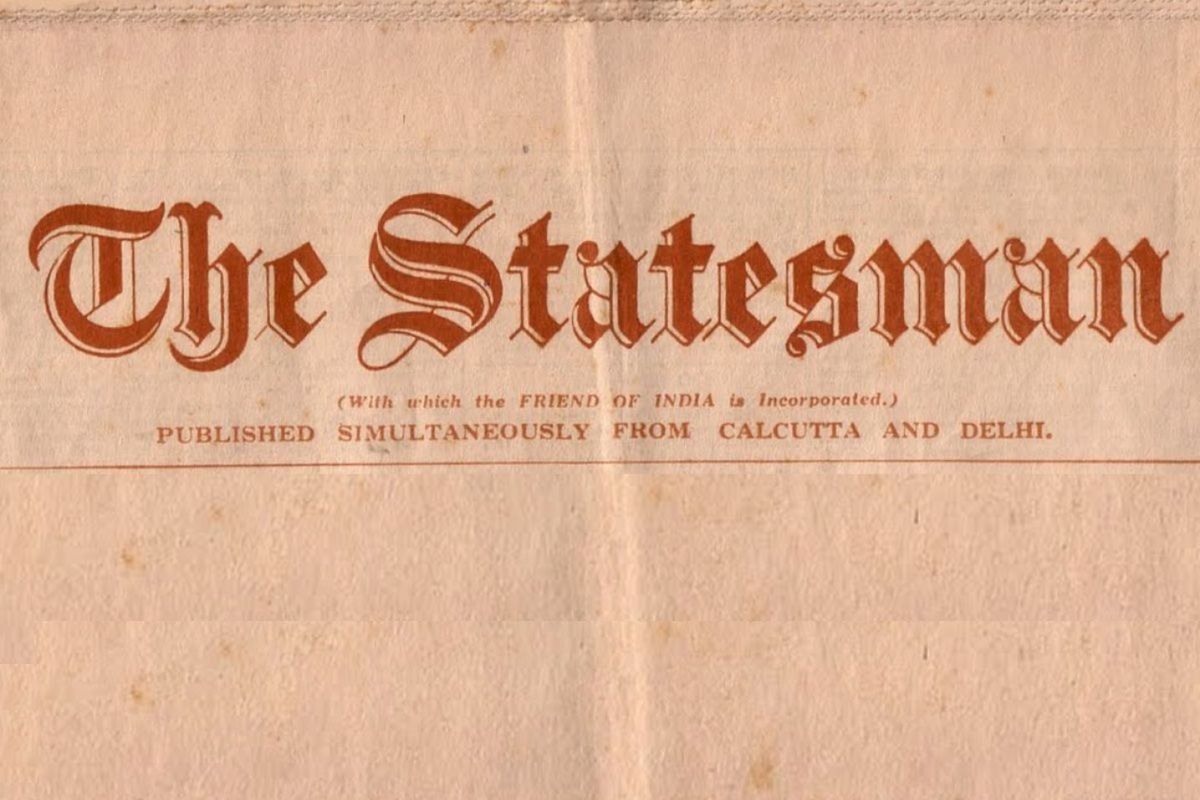A New Day, A New Dawn
There is a surprise for the readers. A special Poila Boishakh gift from none other than West Bengal chief minister Mamata Banerjee. Who has written a piece for this special edition.
On this day a century ago, these were some of the news items The Statesman readers got to read about India and the world.

OCCASIONAL NOTE
The suggestions made by Mr. N.N. Wadia in his address to the Sydenham College of Commerce at Bombay on the subject of labour disputes are excellent, provided the workers in India can be trained to carry them out in practice. The only remedy for industrial unrest, in his opinion, lies in the establishment of industrial courts or councils on the lines of English councils, with a separate tribunal for each industry, and an appeal to a central court in case of disagreement. The act that such tribunals are not infallible is no reason why they should not be tried for all they are worth, and they are undoubtedly capable of rendering very useful service. One necessary condition is that there shall be sufficient sense of discipline to ensure the acceptance of a decision once given, even though it be unpopular. Until men are educated up to this point, a common tendency is to regard such a decision only as an additional grievance. Mr. Wadia urged that only practical men connected with the industries in question should be allowed to sit on the councils. Here he touched a weak spot. If only practical men were allowed to concern themselves with labour disputes, the “industrial unrest” of which Mr. Wadia spoke would be easy to settle. Most of the trouble is caused by outsiders who have axes of their own to grind.
BOMBAY PORT
Advertisement
Some interesting figures were presented at the Bombay Port Trust annual inspection this afternoon, showing the amount of military traffic that passed through the port, during the war. The total number of troops and personnel was 2,297,924, of whom over half a million were sick or wounded. The figures for military stores during the first two years of the war are not available, but the quantity of stores shipped in transports or landed from them between November, 1916, and December 31, 1919, was 2,280,353 tons. The coal railed into the docks for bunkering hired transports and hospital ships during the war was 2,453,210 tons. An interesting place inspected was the site for the proposed Port Trust Labour Village.
SEAT OF INDIAN GOVERNMENT
DELHI, FEB 11
In the Imperial Legislative Council this afternoon Mr. Sarma moved that the headquarters of the Government of India be permanently located in one place, and that a suitable centre, if necessary, be selected for the purpose. Mr. Sarma said that the constitution under the Reform Act of the Legislative Assembly and the Council of State, with every prospect of increase as responsible government in the centre became real, rendered the question as to whether there should be two capitals or only one, and the location thereof, important. Old considerations which weighed in determining the location under the autocratic official Government with a small Indian advisory body, namely appeal to the sentiment, historic tradition and convenience of officials, lost their importance when Government was broad based on the good-will of the people.
1944-45 INDIAN LOAN
The report on the 1944-45 Income TaxFree Loan, now in the hands of the Government of India, shows that the total value of the securities for which applications have been received amounts to Rs 21,283 crores, including, Rs 614 crores on account of the Post Office section. When it is remembered that this was no War Loan pushed by widespread patriotic propaganda, and that the terms were not such as to offer particular attractions to the small investor, the result can only be pronounced distinctly satisfactory. The Loan depended for its success upon its merits as a business proposition and could not fail to be affected by the numerous openings now available in the shape of the active flotation of post-war companies for capital seeking investment.
BRITISH COURTS IN INDIA
LAHORE, FEB 11
Mr. Justice Martineau, in the High Court yesterday, passed orders in a criminal revision case in which the interesting question of jurisdiction of courts In British India was raised. It appears that Radha Kishen, late Naib Tehsildar, Montgomery, was placed on suspension in connection with charges of corruption against him. He fled into Gwalior territory, but was arrested at Gwalior railway station by a police sub-inspector, on a telegraphic order of arrest from the District Magistrate, Montgomery. He filed a revision in the High Court contending that the Magistrate’s order directing his arrest at Gwalior railway station was without jurisdiction. His Lordship, following the Privy Council ruling in Yusufaddin’s case, and referring to various notifications issued by the Government of India with regard to railway lands in Native States accepted the contention, and set aside the District Magistrate’s order.
Advertisement